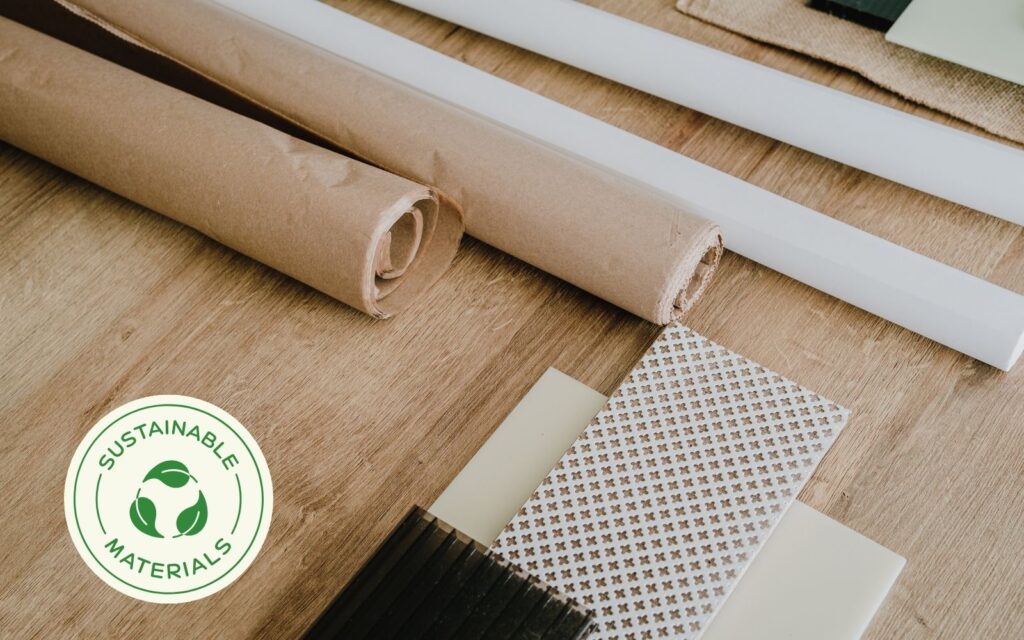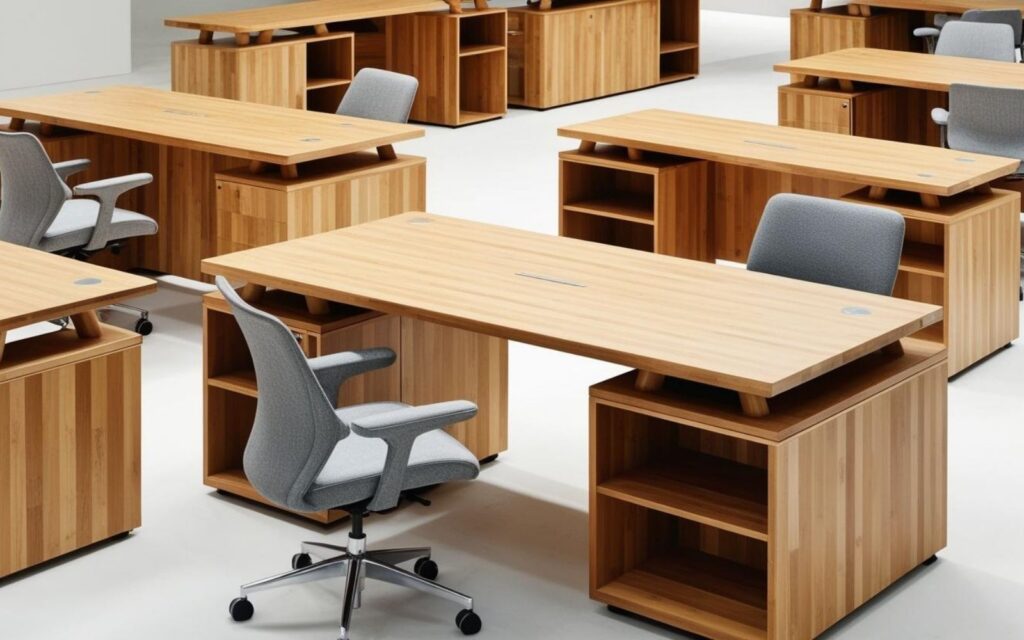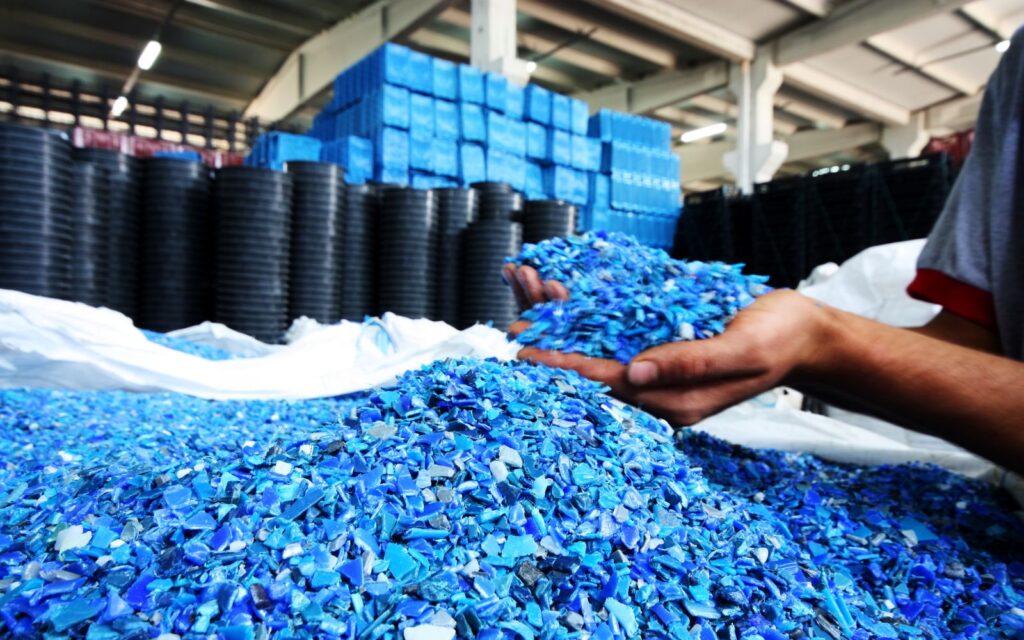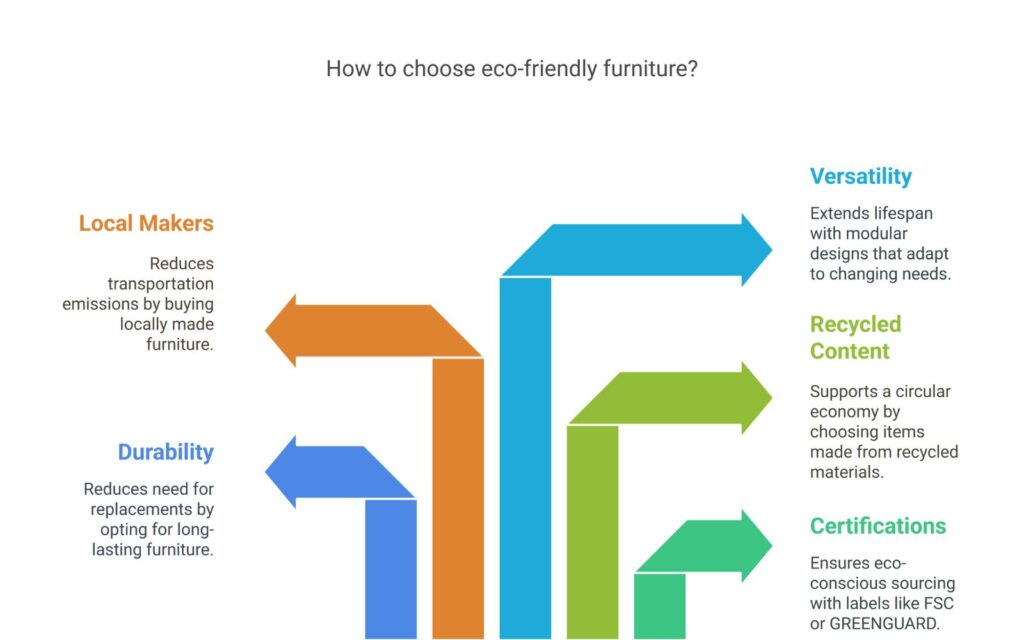The Best Sustainable Materials for Office Furniture: A Practical Guide

Creating a workspace with eco-friendly office furniture is one of the best ways to support a more sustainable future.
The office furniture industry has embraced sustainable materials for office furniture to minimize environmental impact, promote social responsibility, and improve indoor air quality.
Whether setting up a home office or revamping a commercial space, sustainable choices help reduce carbon emissions and create visually appealing, healthier office environments.
In this guide, we’ll dive into the sustainable materials reshaping the world of office furniture and show you how prioritizing sustainability leads to long-term benefits for both people and the planet.
Key Takeaways – Sustainable Materials for Office Furniture
- Eco-friendly materials like bamboo, recycled metals, and reclaimed wood help reduce waste and carbon emissions.
- Prioritizing sustainably sourced and renewable materials supports a circular economy.
- Choosing sustainable office furniture improves employee well-being and boosts productivity.
- Sustainable practices create durable furniture with unique character and lower environmental impact.
Why Choose Sustainable Materials for Office Furniture?

Traditional office furniture often involves processes and raw materials that harm the environment, like solid wood harvested from unsustainably managed forests or plastics derived from fossil fuels. By opting for eco-friendly alternatives, businesses can:
- Minimize environmental impact: Use recycled or renewable raw materials to reduce waste.
- Improve indoor air quality: Avoid volatile organic compounds (VOCs) in some synthetic furniture.
- Support a circular economy: Choose furniture from reused materials or recycled content.
- Promote social responsibility: Back sustainable practices that align with ethical standards.
Let’s explore some of the best sustainable options!
Bamboo: A Renewable Powerhouse

What Makes Bamboo Special?
Bamboo is one of the most eco-friendly materials available. It’s a fast-growing, renewable raw material that regenerates naturally after harvesting.
Ideal for:
- Desks
- Shelving
- Office chairs
Benefits:
- Naturally pest-resistant (no pesticides required)
- Reduces carbon emissions by absorbing CO2 as it grows
- Lightweight yet durable
Recycled Metals: Strong and Sustainable

Why Recycled Metals Matter
Using recycled metals like aluminum and steel reduces waste and conserves natural resources. Metals can be recycled indefinitely, making them ideal for durable furniture.
Common Applications:
- Table frames
- Filing cabinets
- Industrial-style office furniture
Sustainability Impact:
- Lower energy use compared to mining new metal
- Supports a circular economy by giving materials a new life
Reclaimed Wood: Unique Character and Sustainability

What’s Great About Reclaimed Wood?
Reclaimed wood comes from old buildings, discarded furniture, or other sources. This material adds unique character to furniture while saving trees.
Best Uses:
- Rustic office desks
- Bookshelves
- Reception counters
Eco-Friendly Benefits:
- Reduces deforestation
- Repurposes materials that would otherwise become waste
FSC-Certified Wood: A Mark of Responsibility

The Role of FSC Certification
The Forest Stewardship Council (FSC) guarantees that wood comes from sustainably managed forests, emphasizing environmental and social responsibility.
Perfect For:
- Conference tables
- Solid wood desks
- Office shelving units
Advantages:
- Supports reforestation efforts
- Ensures ethical sourcing practices
Recycled Plastics: A Second Chance for Waste

Why Use Recycled Plastics?
Furniture made from recycled content, such as plastic bottles, prevents waste from piling up in landfills. It’s versatile, lightweight, and surprisingly durable.
Uses in the Office:
- Modular office chairs
- Outdoor furniture
- Desk organizers
Key Benefit:
- Cuts down on plastic pollution
Natural Fibers: Comfortable and Eco-Friendly

What to Look For
Textiles made from natural materials like organic cotton, wool, or hemp are free from harmful chemicals and volatile organic compounds, promoting better air quality.
Applications:
- Upholstered chairs
- Lounge sofas
- Decorative office accents
Sustainability Perks:
- Biodegradable and recyclable
- Reduces indoor air pollution
Cork: Flexible and Renewable

The Cork Advantage
Cork is harvested from the bark of cork oak trees, which regenerate naturally. It’s soft, warm, and perfect for ergonomic designs.
Best Used For:
- Chair backs
- Desk mats
- Pinboards
Eco-Friendly Edge:
- 100% biodegradable
- Minimal processing required
How Sustainable Office Furniture Boosts Productivity

Investing in eco-friendly office furniture isn’t just suitable for the planet- it’s great for people, too. Here’s why:
- Improves employee well-being: Natural materials and better indoor air quality reduce stress.
- Boosts productivity: Comfortable and thoughtfully designed furniture enhances focus.
- Shows commitment to sustainability: Demonstrates a company’s dedication to a sustainable future and social responsibility.
Tips for Choosing Eco-Friendly Furniture

When shopping for eco-friendly office furniture, consider these tips:
- Look for certifications: Labels like FSC or GREENGUARD ensure eco-conscious sourcing.
- Focus on durability: Opt for durable furniture to reduce replacements.
- Embrace recycled content: Choose items made from recycled materials to support a circular economy.
- Support local makers: Reduce transportation emissions by buying locally made furniture.
- Prioritize Versatility: Modular designs help extend the lifespan of your furniture.
Summary
Switching to sustainable materials for office furniture is a smart way to prioritize sustainability, minimize environmental impact, and improve office environments.
Materials like bamboo, recycled metals, FSC-certified wood, and reclaimed timber offer eco-friendly solutions that align with sustainable practices.
By choosing environmentally friendly options, you’ll create a workplace that supports employee well-being, reduces waste, and contributes to a more sustainable future.
Frequently Asked Questions
What Are Sustainable Materials for Office Furniture?
Sustainable materials include bamboo, recycled metals, reclaimed wood, natural fibers, and FSC-certified wood sourced from sustainably managed forests.
How Does Sustainable Furniture Help the Environment?
It reduces carbon emissions, waste, and resource consumption while promoting ethical sourcing and better indoor air quality.
What Is FSC-Certified Wood?
FSC-certified wood is harvested from sustainably managed forests, ensuring environmental and social responsibility.
Can I Use Recycled Materials for Office Furniture?
Yes! Furniture made with recycled metals, plastics, and wood saves waste and aligns with circular economy principles.
Why Should Businesses Prioritize Sustainable Design?
Sustainable design minimizes environmental impact, supports employee well-being, and demonstrates social responsibility, fostering a better workplace and planet.






One Comment